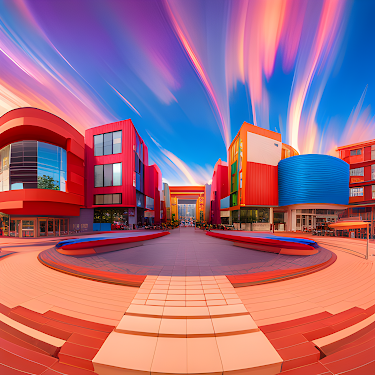What's the Future of Education? How AI and Web3 Are Revolutionizing Learning Experiences ?
The rapid advancements in technology have brought about significant transformations in various industries, and education is no exception. The convergence of Artificial Intelligence (AI) and Web3 technologies is revolutionizing the way we learn and acquire knowledge. In this article, we will explore how AI and Web3 are reshaping education, enhancing learning experiences, and paving the way for a future of lifelong learning.
1. Adaptive Learning with AI:
One of the key benefits of AI in education is its ability to adapt to individual learning needs. AI-powered systems can analyze students' strengths, weaknesses, and learning styles, enabling personalized learning experiences. Adaptive learning platforms use machine learning algorithms to provide tailored content, adaptive assessments, and real-time feedback, allowing students to progress at their own pace and focus on areas that require more attention.
2. Virtual Reality and the Metaverse in Education:
Virtual Reality (VR) and the Metaverse are transforming education by providing immersive learning environments. With VR, students can explore historical sites, travel to distant planets, or simulate scientific experiments, enhancing their understanding and engagement. Additionally, the Metaverse allows students to collaborate with peers from around the world, fostering cultural exchange and global perspectives.
3. Peer-to-Peer Learning Networks:
Web3 and its decentralized nature enable the creation of peer-to-peer learning networks. These networks connect learners directly, bypassing traditional intermediaries. Students can share resources, collaborate on projects, and engage in knowledge exchange without geographical limitations. Peer-to-peer learning networks promote community-driven learning, encourage social interaction, and empower learners to take ownership of their education.
4. Decentralized Credentials and Blockchain:
Blockchain technology offers a decentralized and secure way to store and verify credentials. Educational institutions can issue tamper-proof digital certificates and badges, ensuring authenticity and eliminating fraudulent claims. Learners can showcase their achievements and skills across various platforms, building a verifiable and portable digital identity.
5. AI Tutors and Virtual Assistants:
AI-powered tutors and virtual assistants provide personalized support and guidance to learners. These intelligent systems can answer questions, offer explanations, and provide targeted resources. AI tutors adapt to individual learning styles and offer adaptive feedback, making learning more interactive and engaging.
6. Gamification of Learning:
Gamification integrates game elements into educational activities, making learning fun and engaging. AI algorithms can analyze students' progress, adapt game challenges, and provide personalized feedback. Gamified learning experiences enhance motivation, promote problem-solving skills, and foster a sense of achievement.
7. AI-Enhanced Content Creation:
AI technologies enable automated content creation, including generating quizzes, writing summaries, and producing educational videos. AI algorithms can analyze vast amounts of data and generate customized learning materials tailored to individual needs. This automation of content creation saves time for educators and allows them to focus on facilitating meaningful interactions with students.
8. Smart Classrooms and Intelligent Tutoring Systems:
Smart classrooms leverage AI and Internet of Things (IoT) technologies to create interactive and adaptive learning environments. Intelligent tutoring systems can monitor students' progress, provide personalized recommendations, and adapt instructional strategies based on individual needs. These systems enable real-time feedback, facilitate collaborative learning, and empower educators with data-driven insights.
Conclusion :
The integration of AI and Web3 technologies in education holds tremendous potential to transform learning experiences. Adaptive learning, virtual reality, peer-to-peer networks, decentralized credentials, AI tutors, gamification, content creation, and smart classrooms are just a few examples of how these technologies are revolutionizing education. As we embrace the future of education, it is essential to ensure equitable access to these technologies and address potential challenges.
Download Self Crypto Browser now to get more such interesting updates, explore the web3 ecosystem.








Post a Comment